Verbs That Start With P in English (With Meanings & Examples)
Learning verbs is not just about expanding vocabulary for kids; it’s about igniting a passion for words and teaching them to communicate better. Verbs are the action heroes of our sentences, bringing life and movement to our stories and conversations. Especially for preschoolers and kids, understanding and using verbs starting with “P” can be fun and educational. This guide aims to define verbs, offering meanings and examples that resonate with young minds. These verbs that start with P for preschoolers and kids are crafted to enrich your vocabulary in the most engaging way possible.
What Are The Verbs Beginning With P?
Verbs starting with ‘P’ contain many actions, states, and occurrences fundamental to expressing ourselves in English. These English verbs starting with ‘P’ range from physical activities to mental processes, each with unique significance in language. By exploring these verbs, learners of all ages can enhance their communication skills, improving their conversations and writing with a diverse vocabulary that enhances every sentence.
Common Verbs Starting With P
This section covers common English verbs beginning with ‘P,’ providing their meanings and examples in context. These verbs are foundational to building vocabulary and understanding various actions and processes in English.
1. Paint
To apply colour, pigment, or other substances to a surface.
Example: Paint the walls blue to refresh the room’s appearance.
2. Perform
To carry out, execute, or do something.
Example: She will perform in the school play tonight.
3. Permit
To allow something to happen or give permission for something.
Example: His parents permit him to stay out late on weekends.
4. Persuade
To convince someone to do something supported by reasoning or argument.
Example: He persuaded his friend to join the gym with him.
5. Plan
To design or arrange a course of action in the future.
Example: We need to plan our vacation itinerary carefully.
6. Play
To take part in an activity for enjoyment and recreation instead of a serious or practical purpose.
Example: Children love to play outside in the park.
7. Plead
To make an emotional appeal or earnest request.
Example: The accused will plead guilty to reduce his sentence.
8. Plot
To plan secretly, especially something illicit or harmful.
Example: They began to plot a way to escape from the prison.
9. Plunge
To jump or dive quickly and energetically.
Example: She took a deep breath and plunged into the cold lake.
10. Ponder
To consider something carefully, especially before making a decision or reaching a conclusion.
Example: He sat quietly, pondering his next move in the game.
11. Portray
To depict (someone or something) in a work of art or literature.
Example: The film aims to portray the famous artist’s life accurately.
12. Possess
To have as belonging to one; own.
Example: She possesses a rare collection of stamps.
13. Postpone
To delay or put off an event to a later time.
Example: They had to postpone the meeting until next week.
14. Practice
To perform an activity or exercise regularly to improve or maintain proficiency.
Example: He practices the piano every day for two hours.
Action Verbs that Start With P
In English, action verbs convey specific actions, movements, or tasks. This segment highlights verbs with ‘P,’ providing their meanings and showing how they can be used in sentences. These verbs are instrumental in crafting engaging language suitable for various contexts.
1. Push
To exert force on someone or something to move them away from oneself.
Example: He had to push the door hard to open it.
2. Pull
To exert force on someone or something to draw them towards oneself.
Example: She pulled the drawer open to find her keys.
3. Predict
To say or estimate that a specified thing will happen in the future.
Example: Meteorologists can predict the weather with remarkable accuracy.
4. Prepare
To make ready or able for some activity, purpose, or use.
Example: They prepare their meals for the week every Sunday.
5. Present
To give something to someone, especially formally, at a ceremony.
Example: The company will present awards to its top-performing employees.
6. Preserve
To maintain something in its original or existing state.
Example: Efforts are being made to preserve historic buildings in the city.
7. Proclaim
To announce officially or publicly.
Example: The government proclaimed a new national holiday.
8. Produce
To make or manufacture goods from components or raw materials.
Example: The factory produces thousands of cars each year.
9. Program
To create a sequence of instructions to control a computer’s or other machine’s operation.
Example: She learned to program in several computer languages.
10. Project
To estimate or forecast something based on present trends or data.
Example: Analysts project a rise in employment rates over the next year.
11. Protect
To keep safe from harm or injury.
Example: Firefighters work hard to protect people and property from fires.
12. Protest
To express an objection to what someone has said or done.
Example: Citizens protested against the new law.
13. Prove
To demonstrate a truth or the existence of something by evidence or argument.
Example: The scientist proved his theory with elaborate experiments.
14. Provide
To make available for use; supply.
Example: The charity provides food and clothes to people experiencing homelessness.
15. Prune
To cut away dead or overgrown branches or stems, primarily to encourage growth.
Example: Gardeners prune the bushes to maintain their shape.
Positive Verbs That Start With P
Positive verbs refer to actions that convey encouragement, success, or positive outcomes. These verbs are helpful for uplifting language, motivating speech, or in contexts where a positive tone is desired. This section showcases positive verbs that start with the letter ‘P,’ with their meanings and examples of how they can be used in sentences.
1. Praise
To express approval, warmth, or admiration of someone or something.
Example: The coach praised the team for their hard work and determination.
2. Prosper
To succeed or flourish, especially in financial or business aspects.
Example: The new policy helped local businesses prosper.
3. Promote
To support or encourage a cause, venture, or aim.
Example: She works hard to promote healthy eating habits among children.
4. Propel
To drive or push something forward.
Example: His ambition propelled him to the top of his profession.
5. Please
To make someone feel happy and satisfied.
Example: It pleases her to see her students excel.
6. Pamper
To treat with excessive care and attention.
Example: On her birthday, she pampered herself with a spa day.
7. Persevere
To continue a course of action even in the face of adversity or with little or no chance of success.
Example: They persevered through tough times and eventually succeeded.
8. Perfect
To make something completely free from faults or as good as possible.
Example: He practised daily to perfect his piano skills.
9. Pioneer
To develop a new method, area of knowledge, or activity or be the first to use it.
Example: She pioneered a new technique in heart surgery.
10. Partner
To collaborate with someone to produce or achieve something.
Example: They partnered with a leading tech company for their new project.
11. Prize
To value or regard something highly.
Example: She prizes her family above all else.
12. Prevail
To prove more powerful or superior in strength, influence, or ability.
Example: Justice will prevail in the end.
13. Polish
To make something smooth and shiny by rubbing it.
Example: He took the time to polish his presentation skills before the big meeting.
More Verbs That Begin With P
In addition to the verbs already explored, the English language offers a wide array of verbs starting with ‘P’ that enrich our vocabulary and enable us to describe actions and states more precisely. This section introduces more verbs beginning with ‘P,’ expanding your vocabulary.
| Verb | ||
| Pack | Penalise | Personalise |
| Panic | Perch | Pertain |
| Paralyse | Pester | Petition |
| Pardon | Petition | Phosphoresce |
| Park | Phase | Pinch |
| Partake | Pickle | Pine |
| Participate | Picture | Ping |
| Pass | Pile | Placate |
| Paste | Pave | Plagiarise |
| Patch | Pay | Plant |
| Patrol | Penetrate | Plaster |
| Pause | Perceive | Plate |
| Pawn | Perch | Playact |
| Payback | Perish | Pluck |
| Pedal | Perplex | Plummet |
| Peel | Persist | Plunder |
| Peg | ||
This extensive list of verbs beginning with “P” demonstrates the versatility of the English language, offering a wide array of verbs to articulate actions, emotions, and processes in nuanced and varied ways.
FAQs
1. What are some common mistakes when using verbs that start with ‘P?’
One common mistake is confusing similar-sounding verbs such as ‘pause’ and ‘paws,’ leading to errors in spelling and meaning in sentences.
2. How can I expand my vocabulary with verbs starting with ‘P?’
Regularly reading, practising with language exercises, and using new verbs in daily conversation are effective ways to expand your vocabulary with verbs starting with ‘P.’
Verbs that start with ‘P’ reveal the English language’s vastness and versatility, enabling more accurate and vibrant communication. Incorporating these verbs into your vocabulary can enrich your spoken and written language, making it more engaging. Learning these verbs opens up new avenues for expression and creativity in your language skills, whether for academic, professional, or personal use.
Also Read: Verbs That Start With A to Z
| A | B | C | D | E | F | G | H | I | J | K | L | M |
| N | O | P | Q | R | S | T | U | V | W | X | Y | Z |
Was This Article Helpful?
Parenting is a huge responsibility, for you as a caregiver, but also for us as a parenting content platform. We understand that and take our responsibility of creating credible content seriously. FirstCry Parenting articles are written and published only after extensive research using factually sound references to deliver quality content that is accurate, validated by experts, and completely reliable. To understand how we go about creating content that is credible, read our editorial policy here.





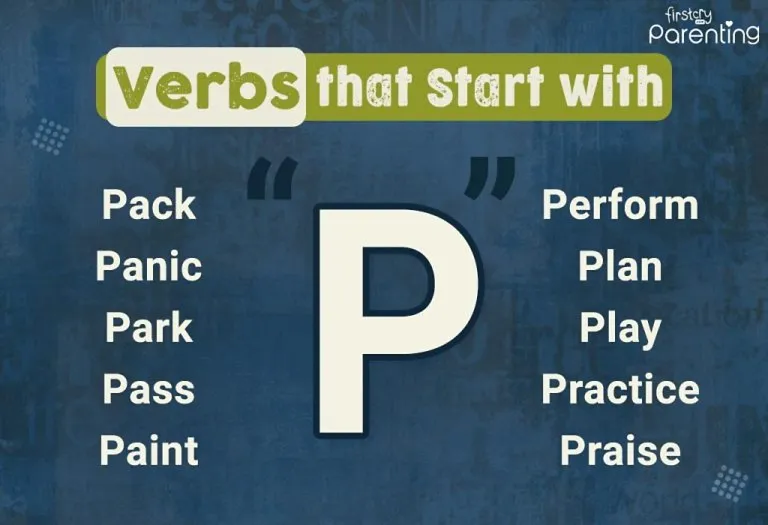
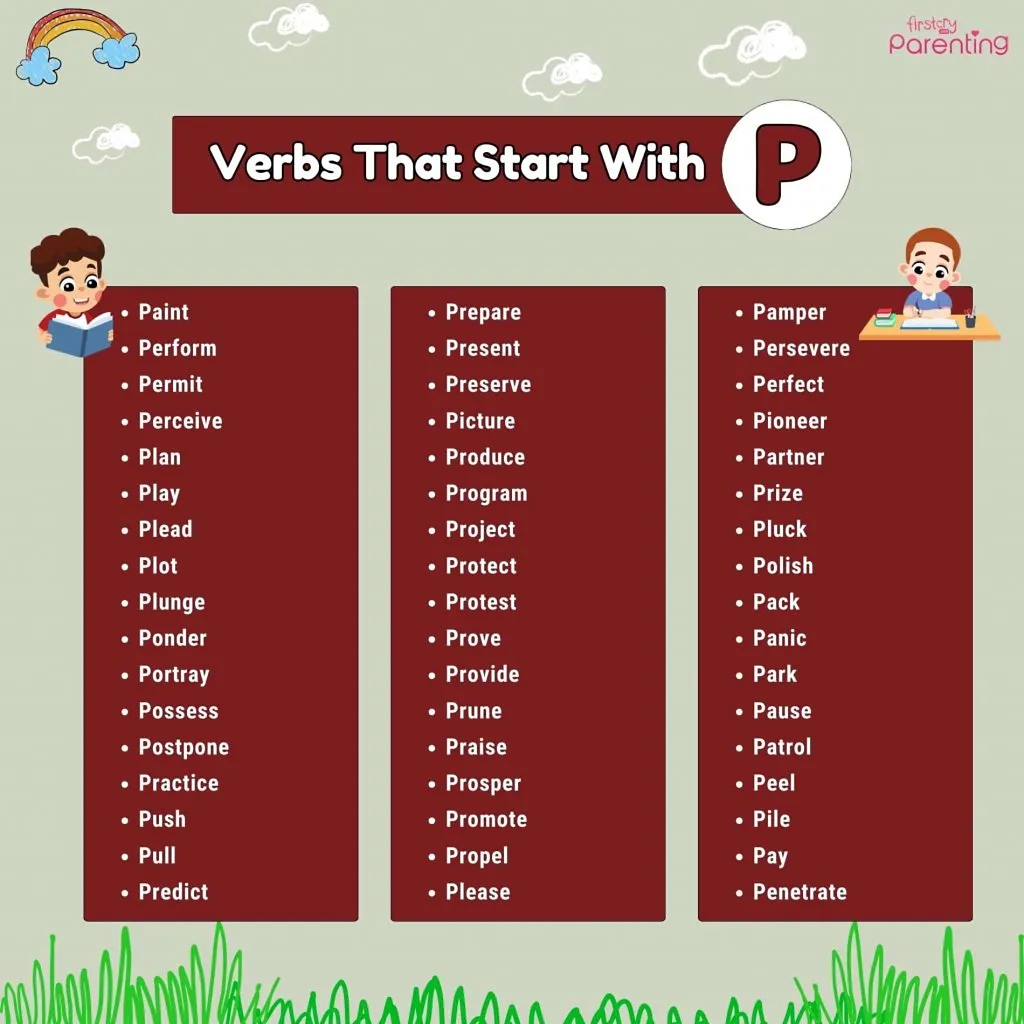



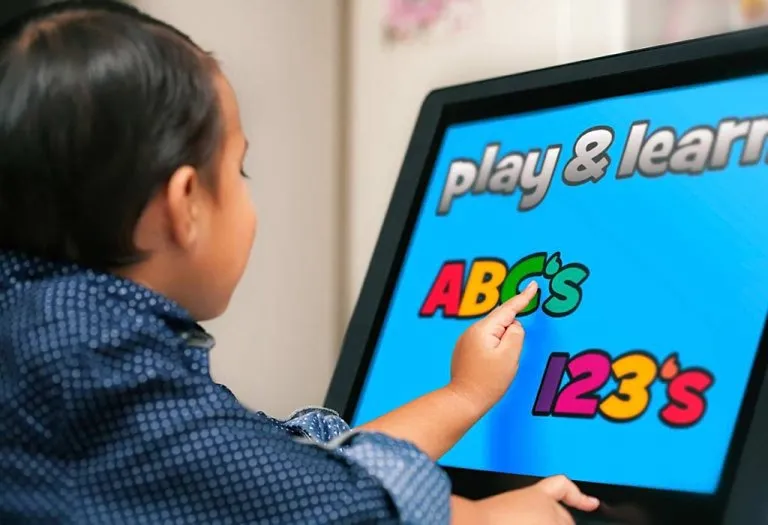
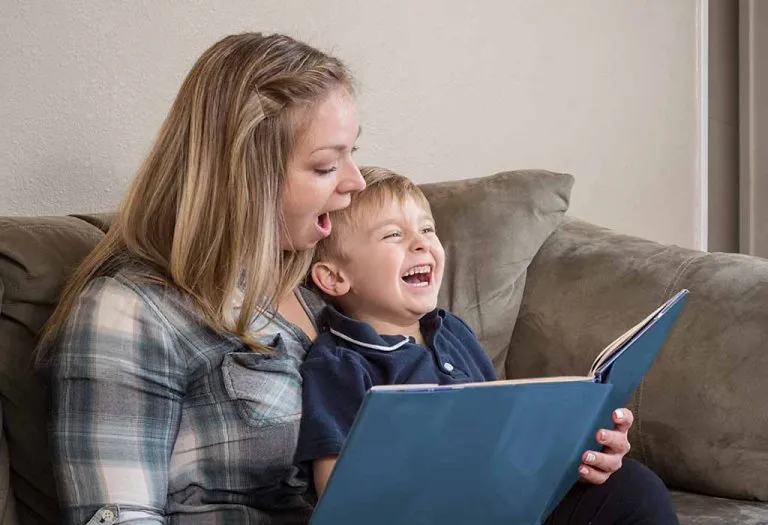
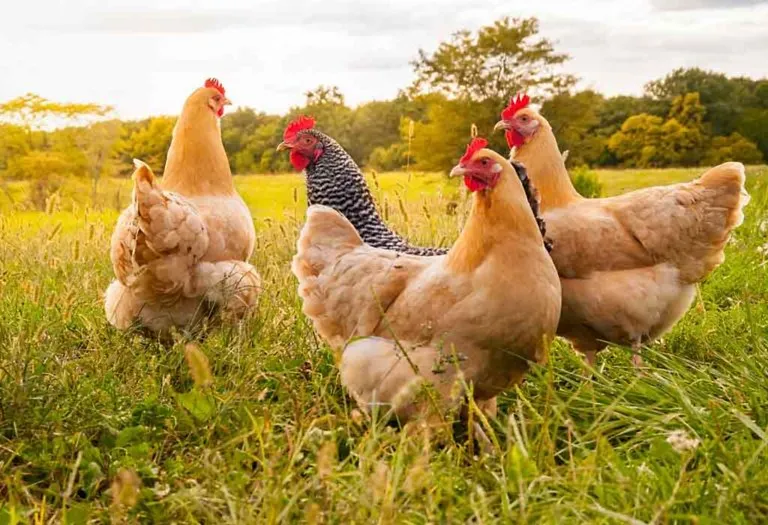

.svg)
















